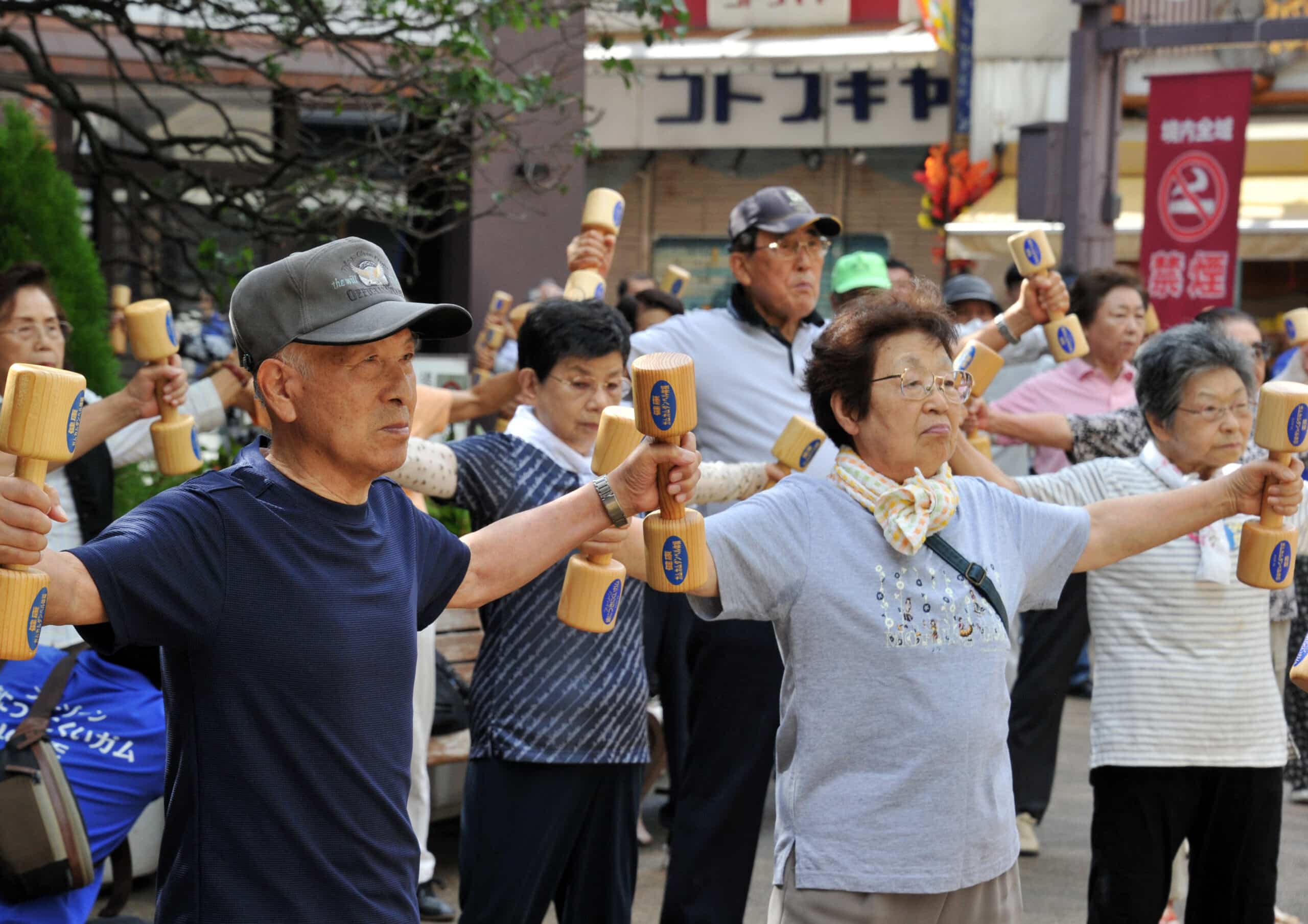More than 95,000 Japanese aged over 100, most of them women

Elderly people work out with wooden dumb-bells in the grounds of a temple in Tokyo | FILE PHOTO/Agence France-Presse
TOKYO — The number of people in Japan aged 100 or older has hit a record high of more than 95,000 — almost 90 percent of them women — government data showed Tuesday.
The figures further highlight the slow-burning demographic crisis gripping the world’s fourth-biggest economy as its population ages and shrinks.
As of September 1, Japan had 95,119 centenarians, up 2,980 year-on-year, with 83,958 of them women and 11,161 men, the health ministry said in a statement.
READ: Japan’s elderly population hits record high
On Sunday separate government data showed that the number of over-65s has hit a record high of 36.25 million, accounting for 29.3 percent of Japan’s population.
The proportion puts Japan at the top of a list of 200 countries and regions with a population of over 100,000 people, the Ministry of Internal Affairs and Communications said.
Japan is currently home to the world’s oldest living person Tomiko Itooka, who was born on May 23, 1908 and is 116 years old, according to the US-based Gerontology Research Group.
READ: One in 10 Japanese are older than 80–government data
The previous record-holder, Maria Branyas Morera, died last month in Spain at the age of 117.
Itooka lives in a nursing home in Ashiya, Hyogo prefecture in western Japan, the ministry said.
She often says “thank you” to the nursing home staff and expresses nostalgia about her hometown, the ministry said.
“I have no idea at all about what’s the secret of my long life,” Japan’s oldest man, Kiyotaka Mizuno, who is 110, told local media.
Mizuno, who lives in Iwata, Shizuoka prefecture in central Japan with his family, gets up at 6:30 am every morning and eats three meals a day — without being picky about his food.
His hobby is listening to live sports, including sumo wrestling, the ministry said.
Japan is facing a steadily worsening population crisis, as its expanding elderly population leads to soaring medical and welfare costs, with a shrinking labour force to pay for it.
The country’s overall population is 124 million, after declining by 595,000 in the previous, according to previous government data.
The government has attempted to slow the decline and aging of its population without meaningful success, while gradually extending the retirement age — with 65 becoming the rule for all employers from fiscal 2025.